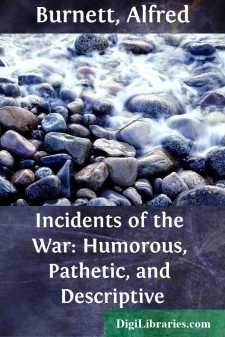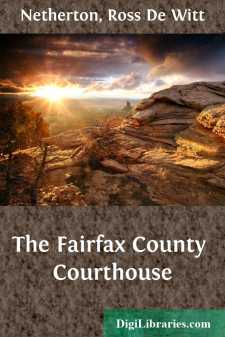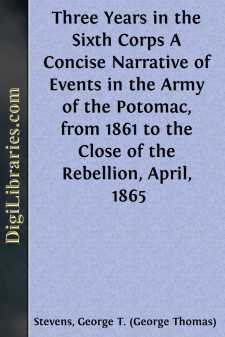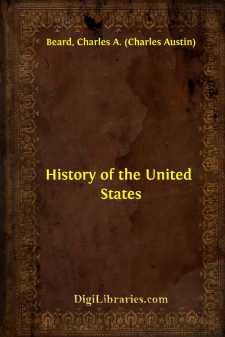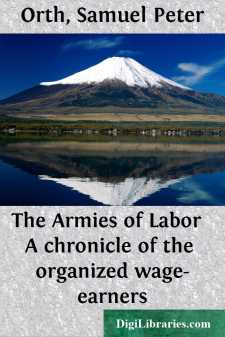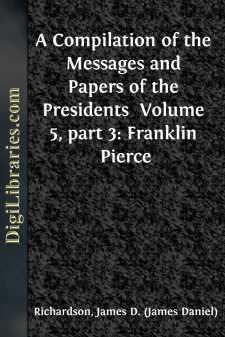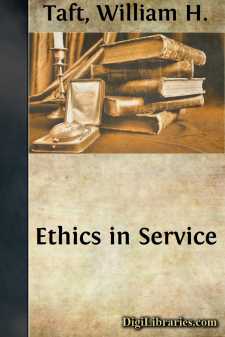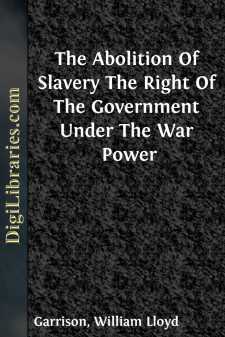History
- Africa 30
- Americas (North Central South West Indies) 50
- Ancient 68
- Asia 58
- Australia & New Zealand 8
- Canada 41
- Caribbean & West Indies 1
- Civilization 20
- Eastern Europe 12
- Europe 310
- Expeditions & Discoveries 60
- General 77
- Historical Geography 1
- Jewish 9
- Latin America 3
- Medieval 8
- Middle East 14
- Military 248
- Revolutionary 8
- Study & Teaching 5
- United States
- Western Europe 56
- World 13
United States Books
Sort by:
by:
Charles E. Hatch
The colonization of Virginia was a mammoth undertaking even though launched by a daring and courageous people in an expanding age. The meager knowledge already accumulated was at hand to draw on and England was not without preparation to push for "its place in the sun." There was a growing navy, there was trained leadership, there was capital, there was organization and there were men ready to...
more...
by:
Alfred Burnett
The author of the following sketches, letters, etc., has been known to us for lo, these many years. We have always found him "a fellow of infinite jest," and one who, "though troubles assailed," always looked upon the bright side of life, leaving its reverse to those who could not behold the silver lining to the darkling clouds of their moral horizon. We could fill a good-sized volume...
more...
ACKNOWLEDGMENTS This monograph is one of a series of research reports on the historical and architectural landmarks of Fairfax County, Virginia. It has been prepared under the supervision of the Fairfax County Office of Comprehensive Planning, in cooperation with the Fairfax County History Commission, pursuant to a resolution of the Board of County Supervisors calling for a survey of the County's...
more...
A NEW REGIMENT GOES TO THE WAR. Organization of the Seventy-seventh N. Y. V.—Departure from Saratoga—Greetings by the way—New emotions—The noble dead—On board the Knickerbocker—At New York—Presentation of flags—Beauties of monopoly—Hospitality of Philadelphia—Incidents on the route—Arrival at Washington—In camp. Our regiment was organized at Saratoga Springs, the historic scene...
more...
CHAPTER I THE GREAT MIGRATION TO AMERICA The tide of migration that set in toward the shores of North America during the early years of the seventeenth century was but one phase in the restless and eternal movement of mankind upon the surface of the earth. The ancient Greeks flung out their colonies in every direction, westward as far as Gaul, across the Mediterranean, and eastward into Asia Minor,...
more...
CHAPTER I. THE BACKGROUND Three momentous things symbolize the era that begins its cycle with the memorable year of 1776: the Declaration of Independence, the steam engine, and Adam Smith's book, "The Wealth of Nations." The Declaration gave birth to a new nation, whose millions of acres of free land were to shift the economic equilibrium of the world; the engine multiplied man's...
more...
INAUGURAL ADDRESS. My Countrymen: It is a relief to feel that no heart but my own can know the personal regret and bitter sorrow over which I have been borne to a position so suitable for others rather than desirable for myself. The circumstances under which I have been called for a limited period to preside over the destinies of the Republic fill me with a profound sense of responsibility, but with...
more...
by:
William H. Taft
CHAPTER I HISTORY OF THE PROFESSION OF LAW It is not too much to say that the profession of the law is more or less on trial. It is certain that there is a crisis in the life of our courts, and that a great political issue is being forced upon the people, for they must decide whether the courts are to continue to exercise the power they now have, and what character of service they shall be required to...
more...
DRUG SUPPLIES IN THE AMERICAN REVOLUTION by George B. Griffenhagen At the start of the Revolution, the Colonies were cut off from the source of their usual drug supply, England. A few drugs trickled through from the West Indies, but by 1776 there was an acute shortage. Lack of coordination and transportation resulted in a scarcity of drugs for the army hospitals even while druggists in other areas...
more...
EMANCIPATION UNDER THE WAR POWER. Extracts from the speech of John Quincy Adams, delivered in the U.S.House of Representatives, April 14 and 15, 1842, on War with GreatBritain and Mexico:— What I say is involuntary, because the subject has been brought into the House from another quarter, as the gentleman himself admits. I would leave that institution to the exclusive consideration and management of...
more...



